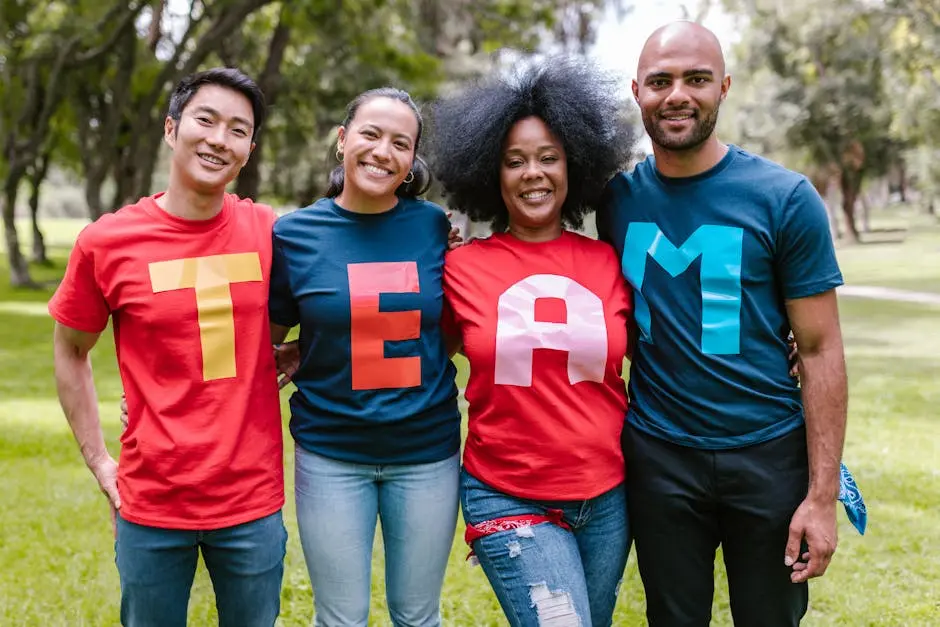Building strong, effective team relationships is essential in event coordination. AWD’s approach emphasises collaboration and trust, ensuring seamless teamwork. Here, we outline five key steps to enhance teamwork and elevate your team’s success in every event.
1. Establishing Clear Communication Channels Through Effective Team Relationships
Communication is the cornerstone of successful event coordination. Without clear lines of communication, misunderstandings can occur, leading to inefficiencies and mistakes. When establishing communication channels within your team, it is vital to ensure that information flows freely and transparently. One effective way to achieve this is by utilising project management tools that centralise all communication and updates in one accessible location.
Moreover, regular team meetings and check-ins can help keep everyone on the same page regarding project status, tasks, and deadlines. By fostering an environment where team members feel comfortable expressing their thoughts and concerns openly, you create a space for constructive dialogue and idea sharing. Remember, effective communication is not just about conveying information; it’s also about active listening and empathy.
To further enhance communication efficiency, consider implementing a feedback system that allows team members to provide input on processes and offer suggestions for improvement. By valuing each team member’s perspective and input, you not only foster a culture of collaboration but also demonstrate respect for their expertise and insights.
2. Fostering Trust and Respect Among Team Members
Trust and respect form the foundation of a cohesive team. In the context of event coordination, where precision and coordination are paramount, cultivating trust among team members is essential. Trust enables individuals to rely on each other, knowing that everyone is committed to the team’s success and will fulfill their responsibilities diligently.
One way to foster trust is by encouraging transparency and honesty in all interactions. Team members should feel comfortable sharing their thoughts, concerns, and challenges without fear of judgment. By promoting open communication and vulnerability, you create a supportive environment where trust can flourish organically.
Respect is equally crucial in team dynamics. Valuing each team member’s contributions, expertise, and perspectives fosters a sense of mutual respect. Recognising and acknowledging the unique strengths of individuals within the team not only boosts morale but also encourages collaboration and innovation. When team members feel respected and appreciated, they are more motivated to work towards common goals and support each other.
3. Encouraging Openness to New Ideas and Feedback
Embracing new ideas and feedback is essential for continuous improvement and innovation in event coordination. Encouraging team members to share their creative concepts and suggestions can lead to fresh perspectives and innovative solutions to challenges. A culture that promotes openness to new ideas fosters creativity and ensures that the team remains dynamic and adaptable.
Incorporating feedback loops into your event coordination process allows for iterative refinement and optimisation. By soliciting feedback from team members and stakeholders at various stages of the project, you can identify areas for enhancement and make informed decisions to improve event outcomes. Remember, feedback should be viewed as a valuable tool for growth and learning, not as criticism.
4. Recognising and Celebrating Team Achievements to Create Effective Team Relationships
Acknowledging and celebrating team achievements is crucial for morale and team cohesion. In the fast-paced world of event coordination, where challenges are common, taking the time to recognise the hard work and accomplishments of team members boosts motivation and morale. Celebrating milestones, both big and small, shows appreciation for individual efforts and reinforces the collective success of the team.
Recognition can come in various forms, such as verbal praise, awards, or team celebrations. Tailor your recognition efforts to suit the preferences of your team members and make it genuine and personalised. By acknowledging achievements publicly, you not only motivate the recognised individuals but also inspire others to strive for excellence.
5. Promoting a Positive and Inclusive Team Culture
Creating a positive and inclusive team culture is instrumental in fostering collaboration and driving success in event coordination. A supportive and inclusive environment encourages team members to bring their authentic selves to work, contributing diverse perspectives and ideas to the collective pool. Embrace diversity and promote inclusivity by valuing each team member’s background, experiences, and unique qualities.
To promote a positive team culture, prioritise team bonding activities and initiatives that strengthen relationships outside of work tasks. Team-building exercises, social events, and volunteer opportunities can help forge strong bonds and create a sense of camaraderie among team members. Additionally, cultivate a culture of mutual support and empathy, where team members uplift and assist each other through challenges.
Lastly, lead by example by embodying the values of positivity, inclusivity, and teamwork. Your actions and attitudes set the tone for the team culture, so demonstrate respect, kindness, and collaboration in all your interactions. By fostering a positive team culture grounded in mutual respect and support, you lay the groundwork for a cohesive and high-performing team in the realm of event coordination.

